(January 11, 2022) This Indian engineer and innovator is creating cutting edge tech in Australia. In the news during the ongoing Covid pandemic, Dr Madhu Bhaskaran and her husband Prof Sharath Sriram had created a sensor which detects asymptomatic Covid before you enter a workplace. Most recently, their research also led to wearable nicotine sensors.
“My advice for those that want to make a difference – kill self-doubt as early as possible in your life. Once you do that, it’s smooth sailing all along.”
- Dr Madhu Bhakaran
From an aspiring graduate student at PSG Tech in Coimbatore to the head of a research team at RMIT University Melbourne (formerly Royal Melbourne Institute of Technology), it’s been a long but eventful two-decade journey for Dr Bhaskaran. “During my early years, my life was filled with self-doubt, especially on the academic front. Like any teenager, I had to battle these issues without letting it affect my career. Looking back, I’m proud to have handled it in a way where today, I’m able to create innovations for the world,” Indian engineer tells Global Indian.
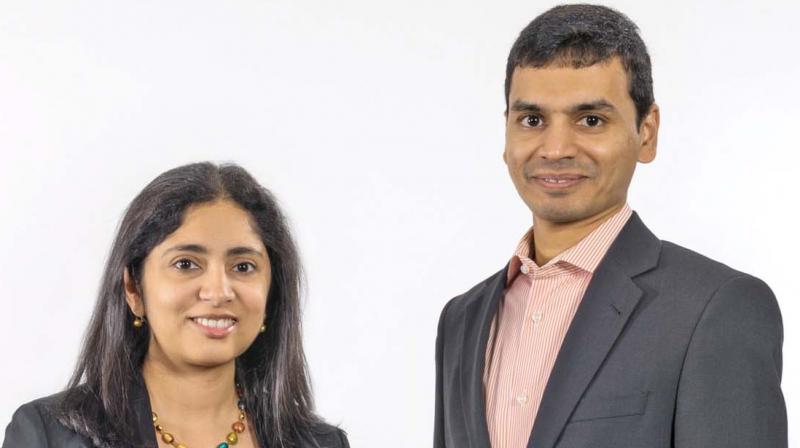
Dr Madhu Bhaskaran with husband Prof Sharath Sriram
The winner of the Eureka Award for Science in 2017, her incisive innovative work on artificial skin also won her Australia’s prestigious, 2018 APEC (Asia–Pacific Economic Cooperation) Science Prize for Innovation. The Victoria fellow has also been named as one of the Top 10 Innovators under 35 for Asia (MIT Technology Review 2016).
A solution for real-time Covid detection
The Covid crisis offered a new healthcare challenge. In July 2021, the Indian engineer became the co-developer in an RMIT team headed by her husband Prof Sharath Sriram, and delivered an instant Covid sensor that can detect the presence of tiny amounts of the SARS-CoV-2 virus and its variants. The Indian engineer incidentally met Sharath during her engineering course, and together they have turned this personal partnership into a hugely innovative professional one too.
Reliable, accurate and non-invasive, the product is currently being rolled out as the “Soterius Scout sensor” and claims to deliver results within a minute to provide the all-clear for someone to enter their work environment, or alert them if they need to undertake a medical Covid test and self-isolate.
The technology will be manufactured in Australia and will initially be delivered to hospitals, with future applications in other front line worker and high-traffic settings including senior citizen care, quarantine hotels, airports and educational institutions.
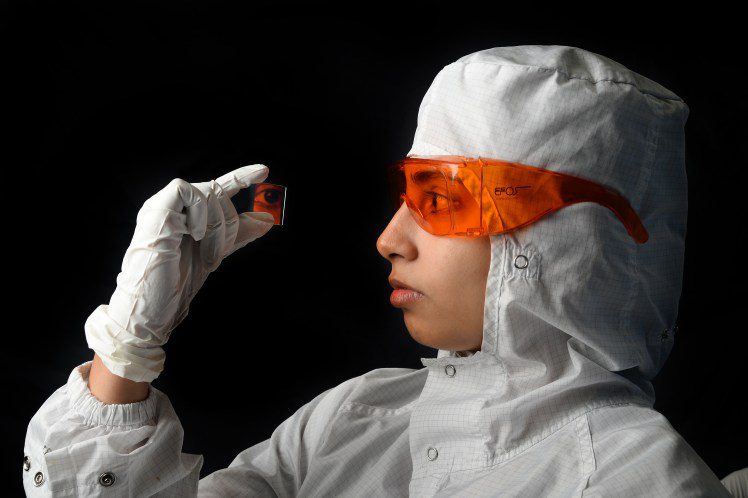
The sensor that harnesses nanotechnology-enabled biosensors were developed by Prof Sriram and Dr Bhaskaran’s team at the leading-edge Micro Nano Research Facility (RMIT). “The pandemic is not going away any time soon and we need smart solutions to help us detect the virus and contain outbreaks,” Prof Sriram says.
On the pinnacle of cutting edge tech, Indian engineer says, “It is exciting to see our platform sensor technology at the core of this smart new solution for the management of the pandemic, and other respiratory viruses in workplaces. Our innovation can be a model not just for Australia but also densely populated countries like India where quick diagnosis can cumulatively reduce disease spread and save lives.”
A couple working together can get complicated at times, but the Bhaskerans have found a way to go beyond science (just about). “We do get bored as we constantly talk about science and work. Once in a while, we unwind and travel. We love exploring new and lesser known yet exotic places,” adds the innovator.
Spearheading global neurology innovation
At the core of this innovation is advanced neurology. Today, the Indian engineer’s work has also made possible, the development of electronic artificial skin that mimics the human body’s near-instant feedback response, and can react to painful sensations with the same lighting speed with which nerve signals travel to the brain. We are familiar with neurologists that use pin pricks or a gentle touch with a hammer to check if a patient is paralysed in any limb. If such skin sensors are damaged, a person loses the sense of touch. Now with Dr Bhaskaran’s research and work, there is hope that artificial skin can replace damaged sensors and augment the lost sensation.

The Soterius Scout sensor
Redefining skin show
Madhu and her team at the electronics and telecommunications department of RMIT harnessed three technologies to achieve pathbreaking results. “Stretchable electronics which combine oxide materials with safe silicone to deliver transparent, unbreakable and wearable electronics as thin as a sticker,” she explains. The temperature-reactive self-modifying coatings 1,000 times thinner than a human hair that transforms in response to heat and a brain-mimicking electronic memory cells that imitate the way the brain uses long-term memory to recall and retain previous information.
Solving the pain relief challenge
Explaining further, Dr Bhaskaran says, “Our skin has complex features designed to send rapid-fire warning signals when anything hurts. We’re sensing things all the time through the skin but our pain response only kicks in at a certain point, like when we touch something too hot or too sharp.”
The tech she feels has many uses. “Our artificial skin reacts instantly when pressure, heat or cold reach a painful threshold. It’s a critical step forward in the future development of the sophisticated feedback systems that we need to deliver truly smart prosthetics and intelligent robotics.”
Thank you @APEC @wiley @Elsevier for this fantastic recognition! Very special night. Credit goes to my hard working research group @sharath_sriram @SumeetWalia4 @MNRF_RMIT and @ResearchRMIT #ASPIRESciencePrize pic.twitter.com/7lbzNhaaOj
— Madhu Bhaskaran (@madhu_bhaskaran) August 14, 2018
Chennai origins
Born and brought up in Chennai, Dr Madhu did her BE in electronics and communications engineering at PSG Institute of Technology Coimbatore (2002-2004) before moving to Australia for a master’s in microelectronics and a PhD in electronics materials engineering (2009).
Today, the Indian engineer co-leads RMIT’s Functional Materials and Microsystems Research Group. Groundbreaking research, for which she has spent research-filled years honing her skills.
“My advice for those that want to make a difference – kill self-doubt as early as possible in your life. Once you do that, it’s smooth sailing all along,” she avers.
Her work is transforming the way we use and interact with electronic devices and sensors. Adding to her accolades is the Research and Education (ASPIRE) Prize and the 2020 Frederick White Medal awarded by the Australian Academy of Science.
Very proud and happy to receive this recognition which celebrates the diversity I bring to Australia and recognises my contributions to research and gender equity conversations! Here’s to breaking bamboo ceilings! @WomenSciAUST @ResearchRMIT @fun_materials @MetaOptics https://t.co/wbPcyfCh54 pic.twitter.com/qYa96vCuyh
— Madhu Bhaskaran (@madhu_bhaskaran) October 29, 2020
“What gives me happiness is that I have managed to do many things beyond research – mentoring PhD students and postdocs, holding leadership positions, contributing to the gender diversity space through my roles in Women Researchers’ Network at RMIT, and nationally through Women in STEMM Australia,” says the scientist whose time management skills are exemplary. Her advice to women in STEM is saying, “Yes to many things to understand what are the opportunities one can say no to in the future.”
The innovator who believes in having Plans B, C, and D to overcome failure, shares, “We deal with rejection and harsh comments on papers and grants so often and if the success rate is 20 percent, I make sure I have five things going at the same time so at least one gets through!”


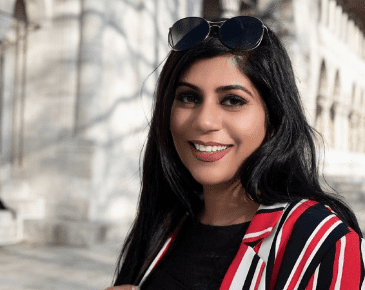
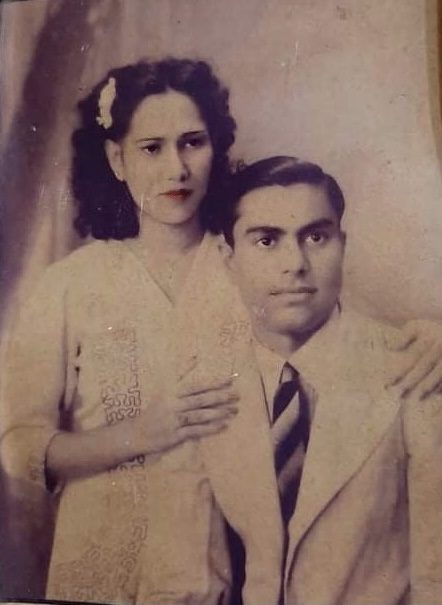 Ann D'Silva's grandparents[/caption]
Ann D'Silva's grandparents[/caption] Ann D'Silva's book cover[/caption]
Ann D'Silva's book cover[/caption]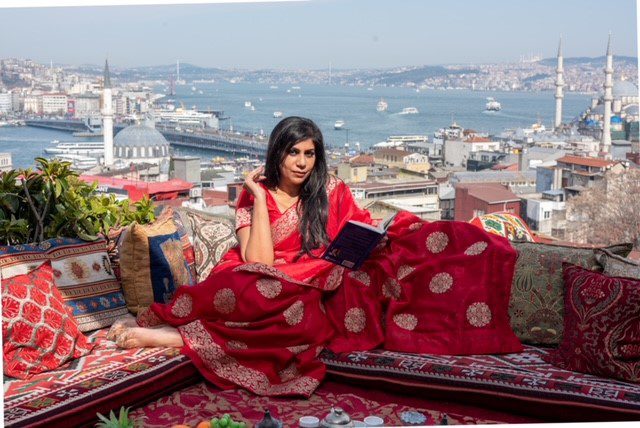 Ann D'Silva in Istanbul[/caption]
Ann D'Silva in Istanbul[/caption]
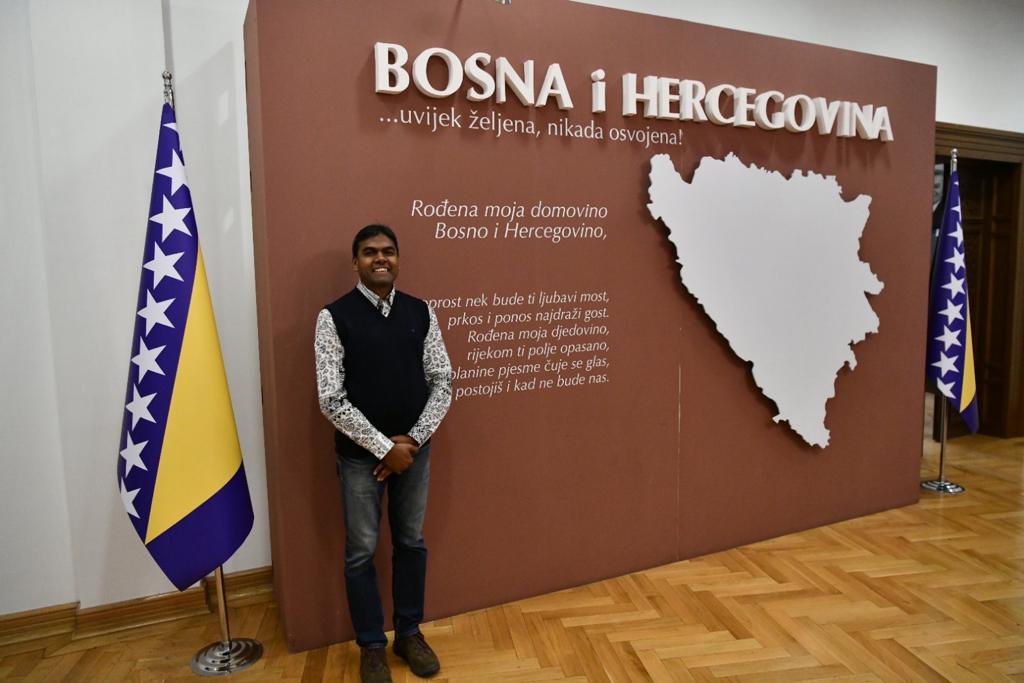
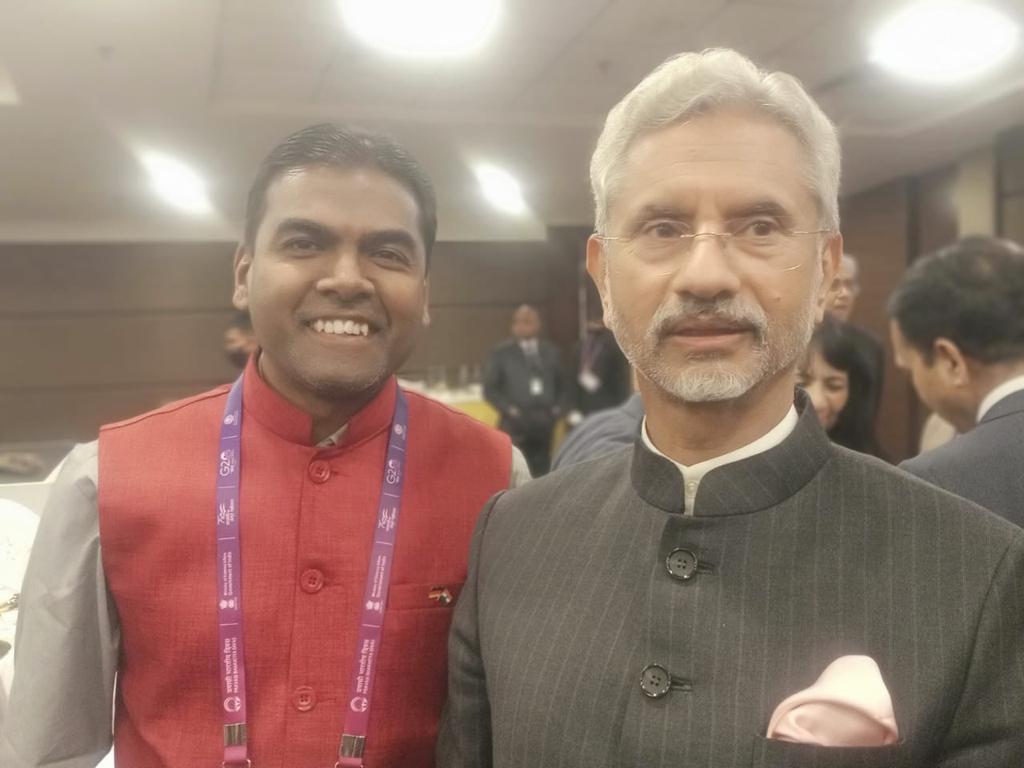 Dr. Ramani with S. Jaishankar, Minister of External Affairs of India[/caption]
Dr. Ramani with S. Jaishankar, Minister of External Affairs of India[/caption]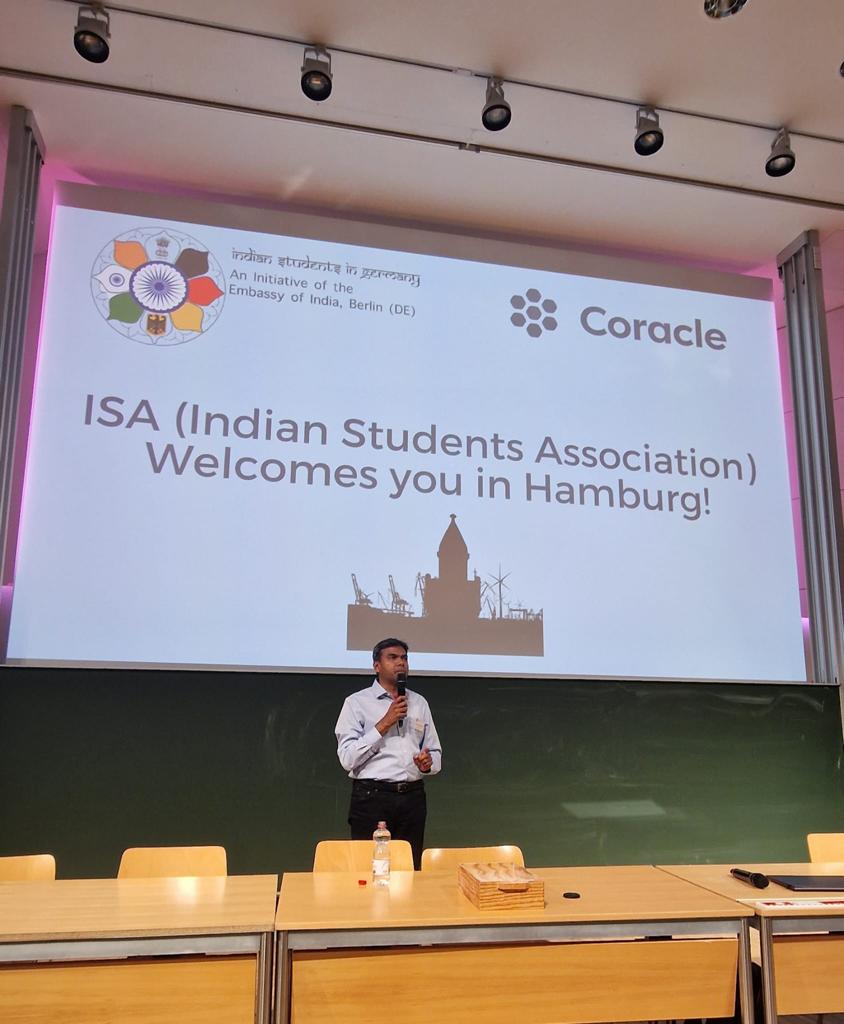
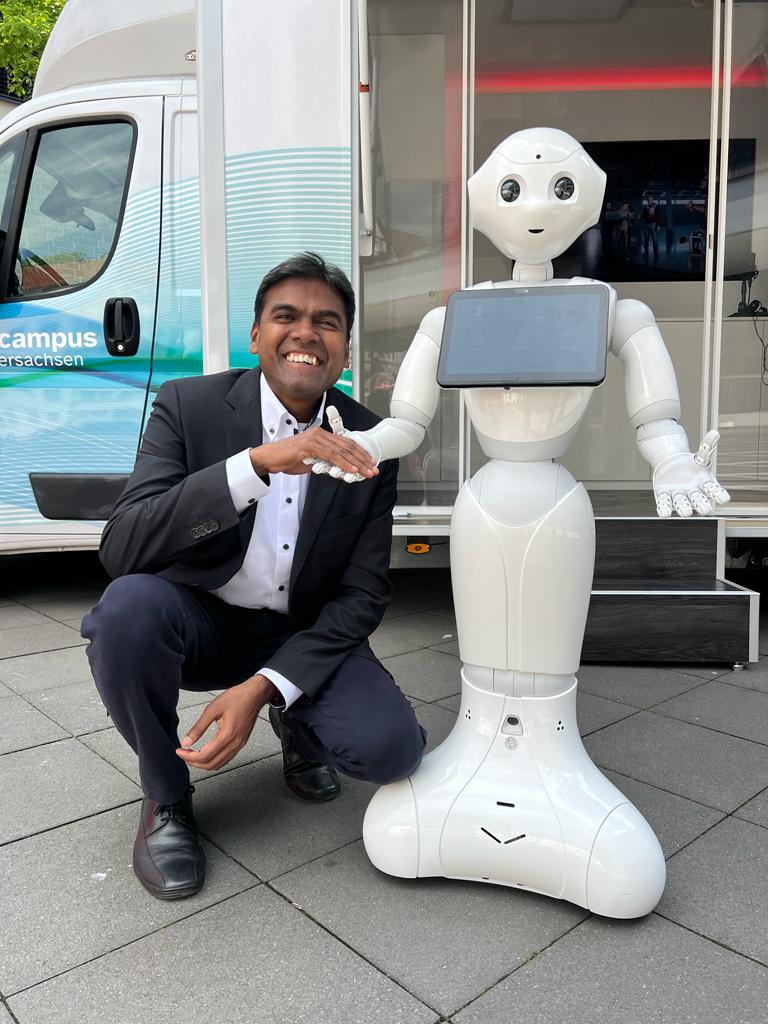

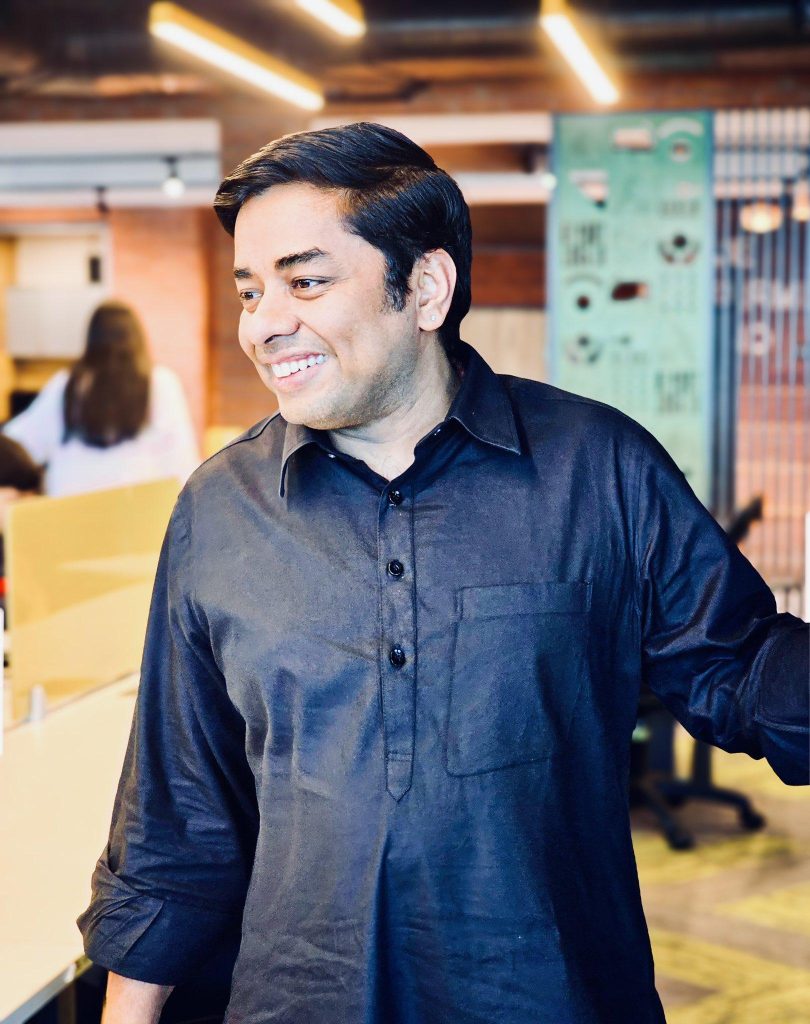 Ruchit Garg, Founder and CFO, Harvesting Farmer Network[/caption]
Ruchit Garg, Founder and CFO, Harvesting Farmer Network[/caption]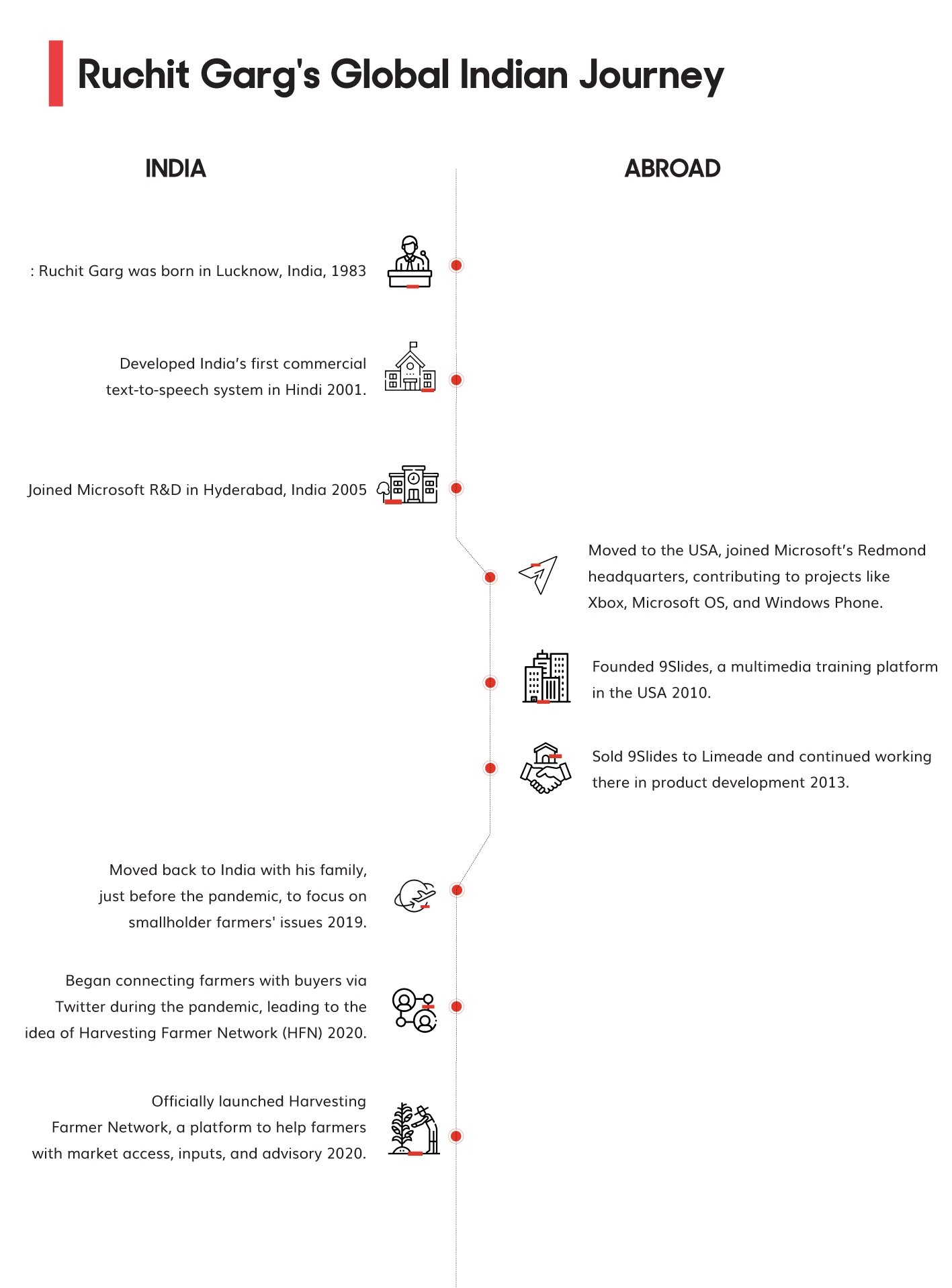
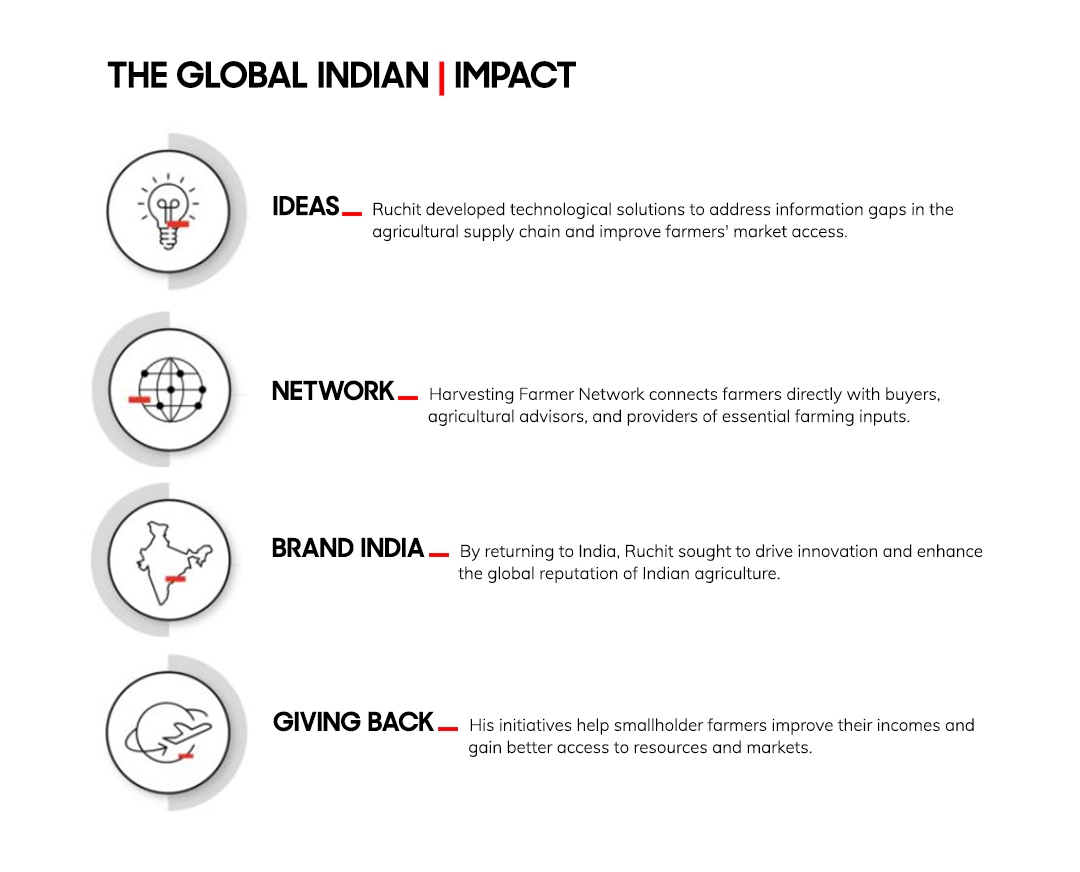
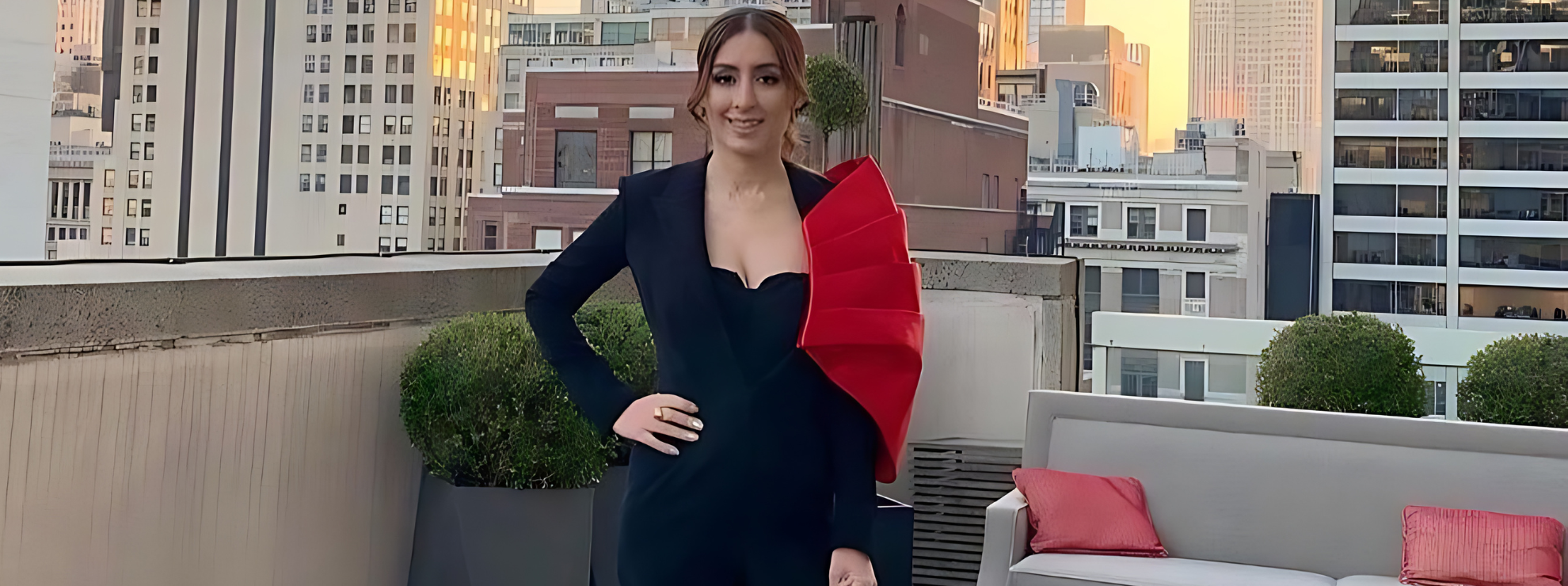
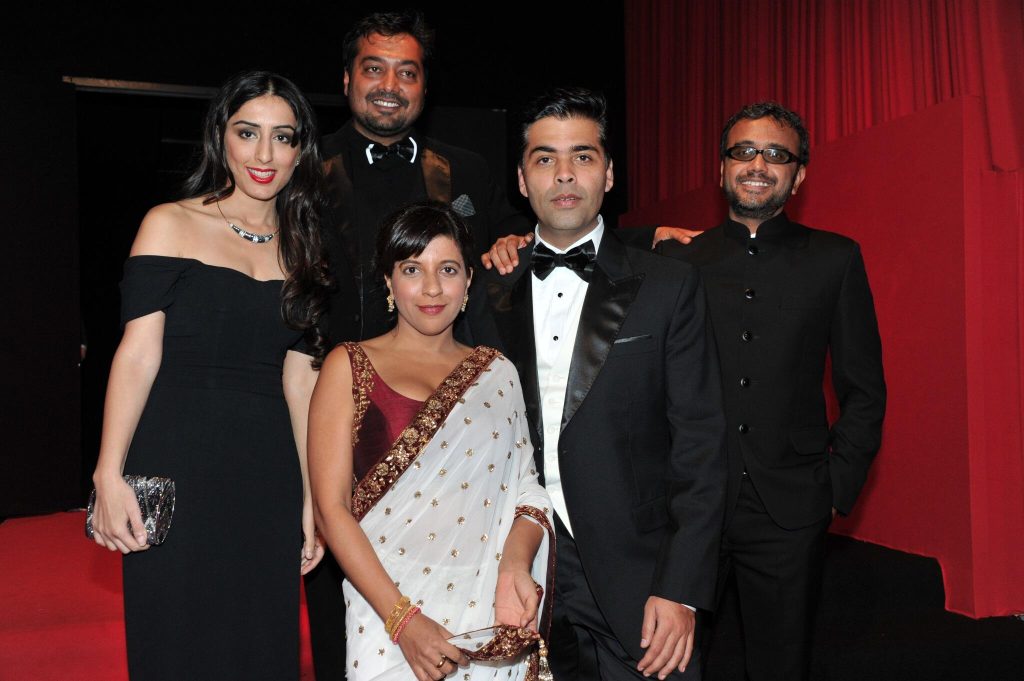 Ashi Dua with Karan Johar and Anurag Kashyap[/caption]
Ashi Dua with Karan Johar and Anurag Kashyap[/caption]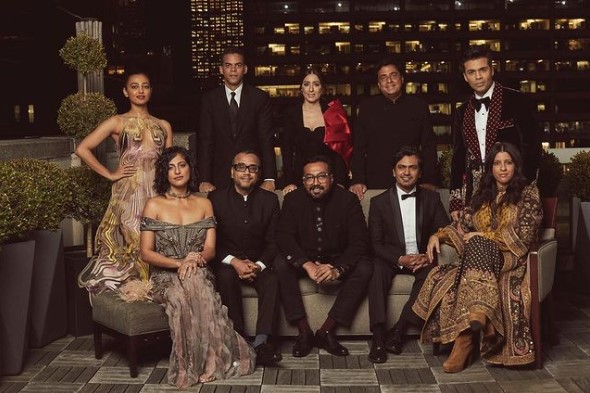 Photo: Instagram[/caption]
Photo: Instagram[/caption]
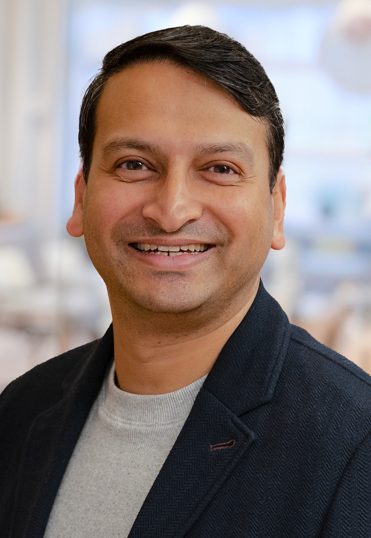 Aditya Mhatre[/caption]
Aditya Mhatre[/caption]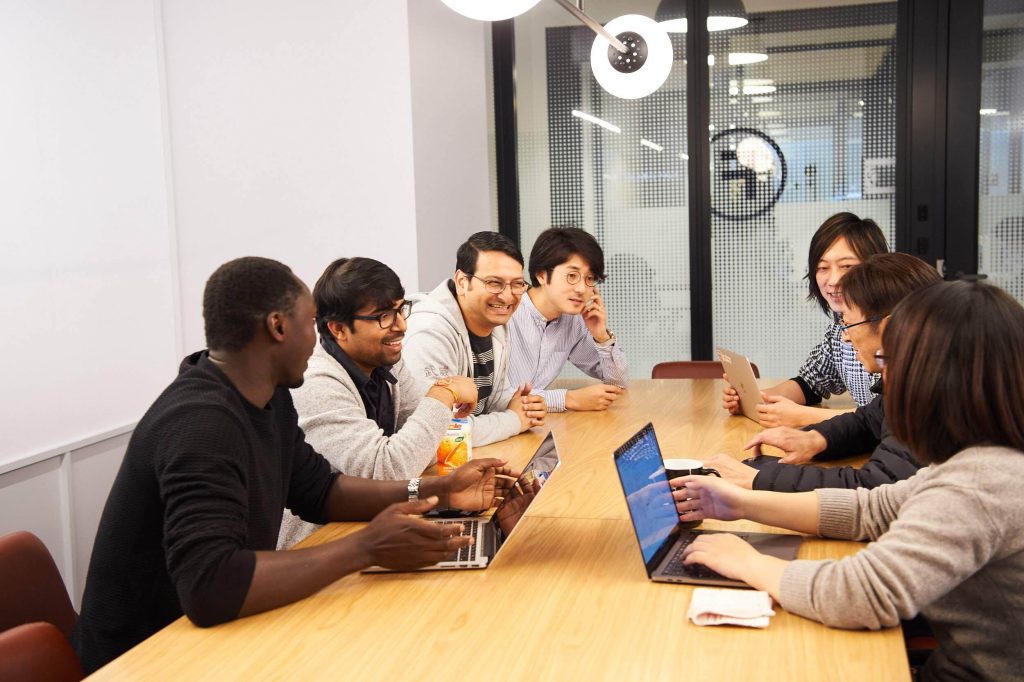 Aditya Mhatre with his team[/caption]
Aditya Mhatre with his team[/caption]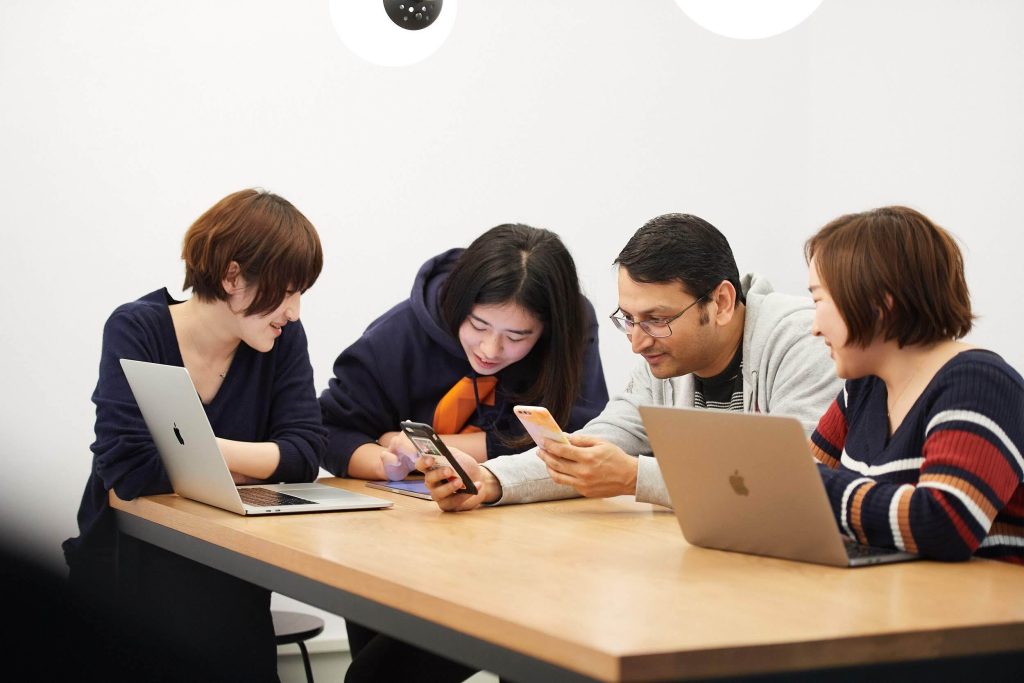 Aditya Mhatre with his team[/caption]
Aditya Mhatre with his team[/caption]